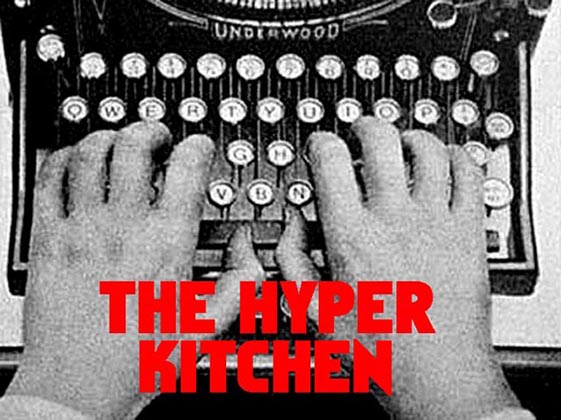During the eighties, the UK went through a national panic. Police were dispatched, raids were made, businesses were forcibly shut down, people were arrested. What was the catalyst for this unpleasant outbreak of martial law? Was it social unrest triggered by high levels of unemployment? Was it the protests made in response to the Thatcher government trying to effectively ban homosexuality? Had the installation of Orwellian security cameras on every street corner provoked rioters that resulted in brutal police action?
Nope. It all had to do a bunch've videotapes.
To place things in context, the VCR and Betamax player had only recently become available for the general public and video stores were a new retail phenomena.Things were vastly different from today in that movie companies were very hesitant to release their films. Amid uncertain new territory for copyright regulations and wild speculation that the videotape would doom the silver screen to obsolescence, few major studios wanted to commit their films to VHS or Beta tapes lest it lead to their own economic ruin. At the time, only a smattering of "classic" movies saw the light of day on videotape (with reluctance on behalf of their owners) and a good portion of these were colorized.
So, during this initial period, it was difficult to find contemporary movie releases for home viewing. Store owners were eager to access the fresh and growing market but when faced with a considerable lack of product, they turned to only alternative. Numerous small distribution companies had arisen specializing in:
1). Porn.
2). Schlock and trash movies. Public domain, poverty row thrillers from the forties alongside easy to procure exploitation movies from abroad, especially from the United States, Spain, and Italy. Before long, the shelves of British video stores were lined with films featuring cannibals, zombies, and psycho killers. Within all this sordid glop were some genuinely entertaining flicks and genre classics, but mostly these movies were notable only for being badly made and almost hilariously gruesome.
 Titles like Gestapo's Last Orgy and Brain Damage Nightmare drew some complaints, but for the most part business was going well. Distribution companies were churning out new finds, and heavily promoted these videotapes. Vipco, a UK-based company, took out a full page in the Sunday Times to advertise the arrival of The Driller Killer, a lovely film about a crazed artist who takes to murdering homeless people with a cordless drill. Other companies followed suit, relentless hyping the notoriety of their movies. One company, Go Video, attempted to stir up some additional sales through a little engineered controversy, and sent an anonymous letter to conservative media watchdogs describing the depravity of Cannibal Holocaust.
Titles like Gestapo's Last Orgy and Brain Damage Nightmare drew some complaints, but for the most part business was going well. Distribution companies were churning out new finds, and heavily promoted these videotapes. Vipco, a UK-based company, took out a full page in the Sunday Times to advertise the arrival of The Driller Killer, a lovely film about a crazed artist who takes to murdering homeless people with a cordless drill. Other companies followed suit, relentless hyping the notoriety of their movies. One company, Go Video, attempted to stir up some additional sales through a little engineered controversy, and sent an anonymous letter to conservative media watchdogs describing the depravity of Cannibal Holocaust.This was a big mistake.
The letter wound up in the hands of Mary Whitehouse, a sour faced Christian crone who had launched a crusade against objectionable material on television. Convinced that Cannibal Holocaust was practically a threat to Western Civilization, Whitehouse spearheaded a community movement to ban the sale and distribution of such films. The tabloids were quick to exploit the public outcry, and ran spurious and half-baked claims that dreck horror was responsible for violent crime and delinquent youths. They coined the phrase Video Nasty to describe the infamous tapes. The term caught on like wildfire.
It was all hysteria and reactionary censorship. The "think of the children" argument was absurd as no retailer in their right mind would ever lend titles like SS Experiment Camp to kids. Additionally, there was never evidence to suggest that anyone would be actually hurt by watching such a movie. They were tasteless, stupid, violent, and often misogynistic, but they were ultimately harmless. Those that objected to them never seemed to consider simply never renting them in the first place.
Eventually, parliament passed the Video Recordings Act in 1984. The act redefined pre-existing obscenity laws to include explicit horror movies and foreign-import smut. Police would investigate the sale and renting of such videotapes, and would arrest shop-owners found with the illegal items in their stores. Some faced as much as eighteen months in prison. The tapes were collected in garbage bags and destroyed on police premises. It was insane. Even copies of Dolly Parton's Best Little Whorehouse in Texas were swept up, under the decidedly incorrect assumption that it was porn.
The liberal and counter-culture institutions of the UK were outraged, and the cheap gore movies that the government had sought to eradicate were suddenly lionized as expressions of free speech. The tapes gained more infamy than they could've hoped to achieve otherwise and movies like Make Them Die Slowly and I Spit On Your Grave became highly sought after items.
More than twenty years later, cooler heads prevailed and the restrictions were reevaluated. However, there are still movies that remain banned in Britain and others are allowed only in truncated, edited forms. Still, freedom won out in the end and the noble people of the UK can insert the special edition DVDs of The Toolbox Murders and Killer Nun and watch the ensuing carnage. For better or worse, the Video Nasties are here to stay.

For better or worse.









No comments:
Post a Comment